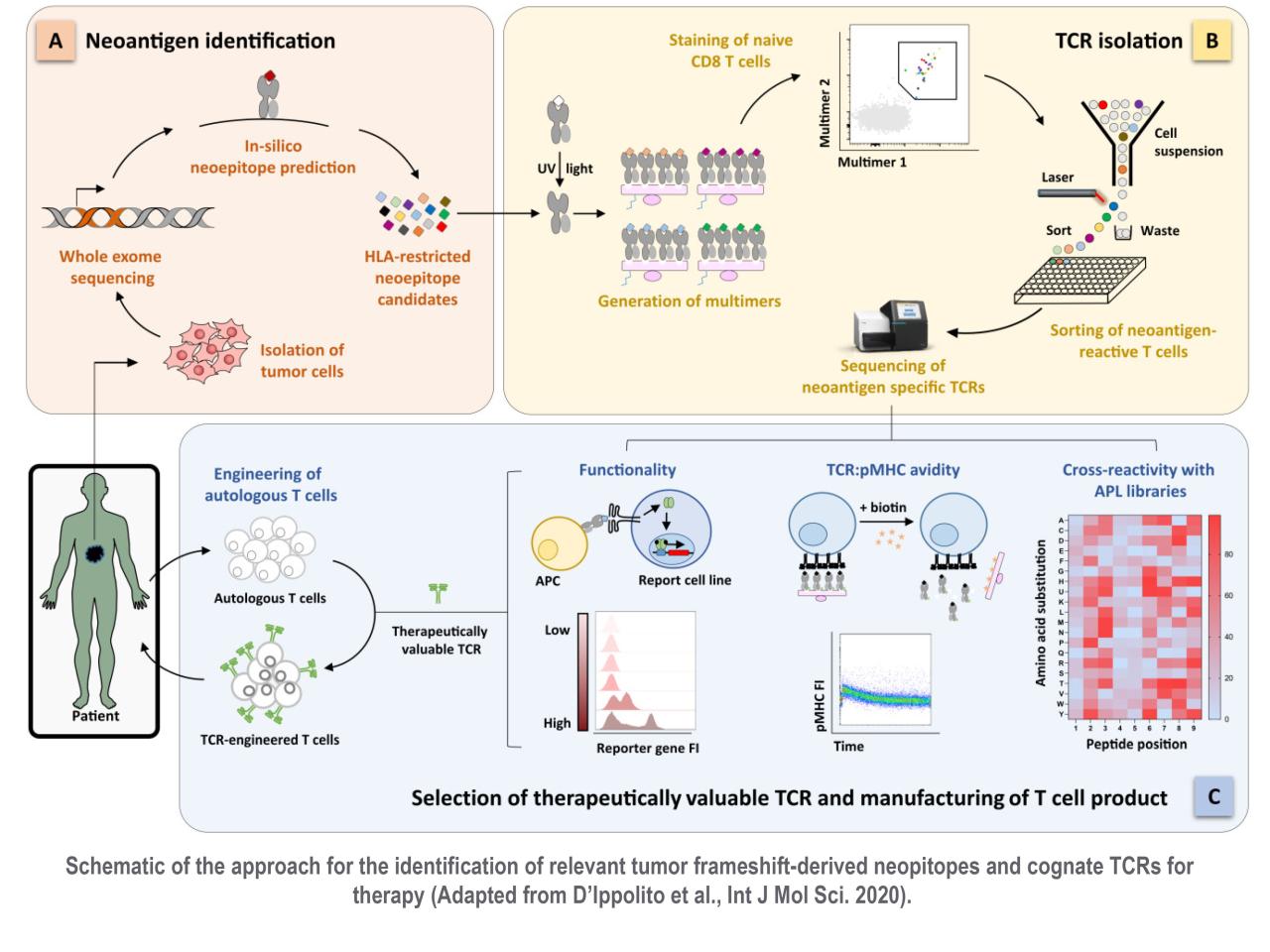
TCR-engineered T cells hold tremendous promise for adoptive cell therapy in cancer immunotherapy. Gastrointestinal cancers, such as pancreatic and colon cancers, present a significant challenge due to limited therapeutic options, driving the need for novel strategies. These tumors exhibit a deficiency in DNA mismatch repair mechanisms, resulting in an abundance of somatic mutations. These mutated proteins, known as ‘neoantigens’, are promising immunological targets due to their tumor specificity, thereby improving safety by minimizing off-target effects. Particularly intriguing are frameshift mutations caused by DNA insertions or deletions, which give raise to proteins with a large non-self-proportion. Moreover, the resulting neoepitopes could be potentially shared among different mutations and individuals.
In the past years, our group has successfully established a platform for identifying tumor-specific TCRs from naïve T cells of healthy donors (see section “How to find a therapeutic TCR”). Building upon this platform, our project aims to explore the landscape of frameshift-derived neoepitope in gastrointestinal cancers and subsequently identify functional TCRs for potential therapeutic use in clinical settings.
